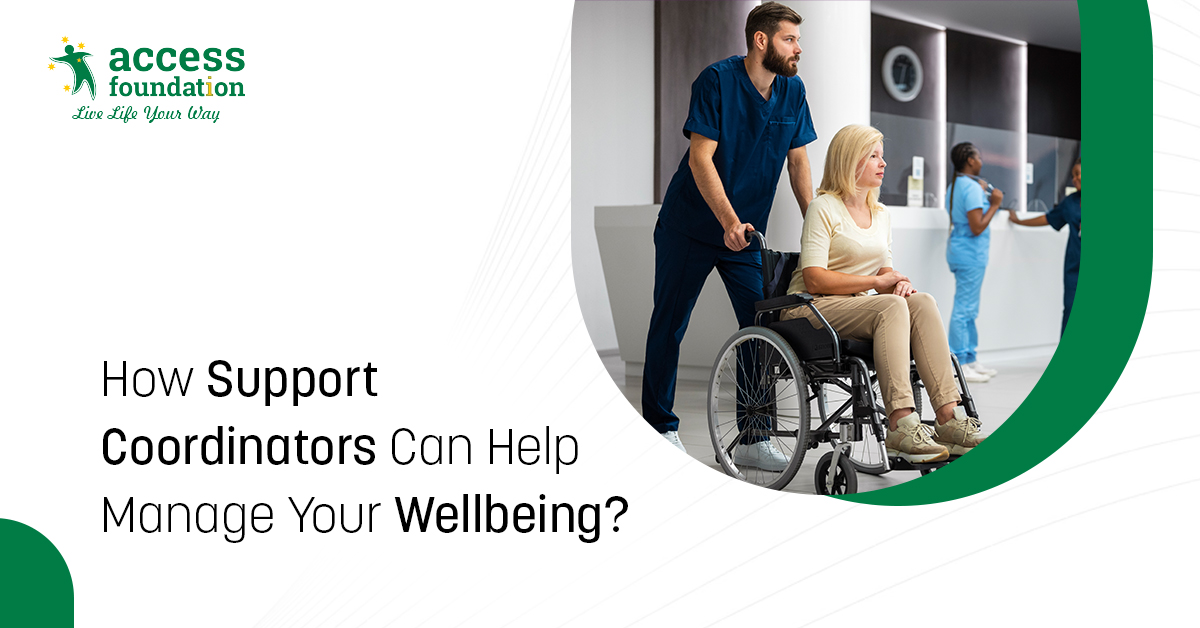
Tips to Manage Wellbeing: NDIS Guide for Support Coordinators!
Nothing is more joyous than helping someone live, learn, and grow independently in this rapidly evolving materialistic world. It's the purest feeling that leads to the utmost satisfaction. But, to do so, many often forget that self-care is pivotal, too.
You are working tirelessly to enhance confidence and compatibility in people's lives. But what about yours? Isn't your mental, physical, and overall wellbeing important, especially when you are a support coordinator?
NDIS and Support Coordinators
As an NDIS support coordinator for disabled participants, your role extends beyond simply connecting them with services. You are crucial in promoting and protecting their overall wellbeing, empowering them to lead fulfilling and independent lives.
But with diverse needs, complex situations, and demanding schedules, it's easy to lose sight of your own wellbeing.This guide equips you with valuable tips to manage your own wellbeing, ensuring you're at your best to support others.
"You won't focus on people's wellbeing till you understand and follow the best practice to manage yours."
Here are some valuable tips to manage your wellbeing
Prioritize Self-Care
"Prioritizing self-care isn't a luxury; it's essential. "
Just as a car needs regular maintenance, clean, high-quality oils, and accessories to run smoothly, so does your body.
Here's what you can follow to achieve that luxury:
Eat nutritious meals, stay hydrated, and prioritize sleep. A healthy body supports a healthy mind.
Regular exercise, such as a brisk walk, can impart several benefits, including reducing stress and increasing energy levels.
Relaxation techniques like meditation or mindfulness can reduce stress, but seeking professional help can be overwhelming.
Take a break from work and social media. Instead, engage in activities like reading, spending time in nature, or connecting with loved ones.
Set Professional Boundaries
"Setting boundaries is crucial for preventing burnout."
Here's how you can manage your workload effectively:
It's essential to be transparent about your availability and workload limitations. To avoid misunderstandings, set practical expectations for both participants and colleagues.
It's essential to prioritize your workload and not take on too much. Learning to say no is a skill that only a few have mastered. This art can surely help you maintain a healthy work-life balance.
Allow participants to delegate tasks and manage their support.
Utilizing various tools and applications to simplify tasks and increase productivity is advisabl
Foster Positive Relationships
Building solid relationships, personally and professionally, is vital to wellbeing.
Here's how you can nurture relationships:
Share your challenges and successes, support others, and build a solid and supportive community together.
Consider therapy or coaching if you face personal challenges or need help developing coping mechanisms.
Spend time with loved ones, engage in social activities, and build a strong support network outside work.
Stay Informed & Upskilled
Staying current with NDIS policies and best practices is essential for providing adequate support. It is also expected of you as a professional.
Here's how you can enhance your NDIS agility:
Investing in your professional development is essential as it can help you expand and upgrade your skills and knowledge, enabling you to grow in your career.
Collaborate and share each other's best practices to learn from each other's experiences and stay updated with the latest industry trends.
Keep updated about legislation changes, funding guidelines, and available support options. It will help you stay informed and make better decisions.
Celebrate Successes
Acknowledging your and your participants' achievements can be incredibly motivating. Here's how you can master this art:
Take time to appreciate big and small wins, celebrating successes with participants and colleagues.
Remember why you do this work and the impact you have. Find joy in the positive changes you help participants achieve.
Express appreciation to participants, colleagues, and yourself for your contributions.
Final Thoughts!
Your wellbeing should not be considered a dispensable resource, as it is the foundation for your success as a support coordinator. By prioritizing your own needs, building strong relationships, managing your workload efficiently, staying up-to-date with the latest information, and acknowledging your accomplishments, you can establish a sustainable and fulfilling career while making a life-transforming impact in the lives of the participants you work with.
Contact Access Foundation , a disability support coordination provider in perth, to learn more about NDIS support coordination and wellbeing.

